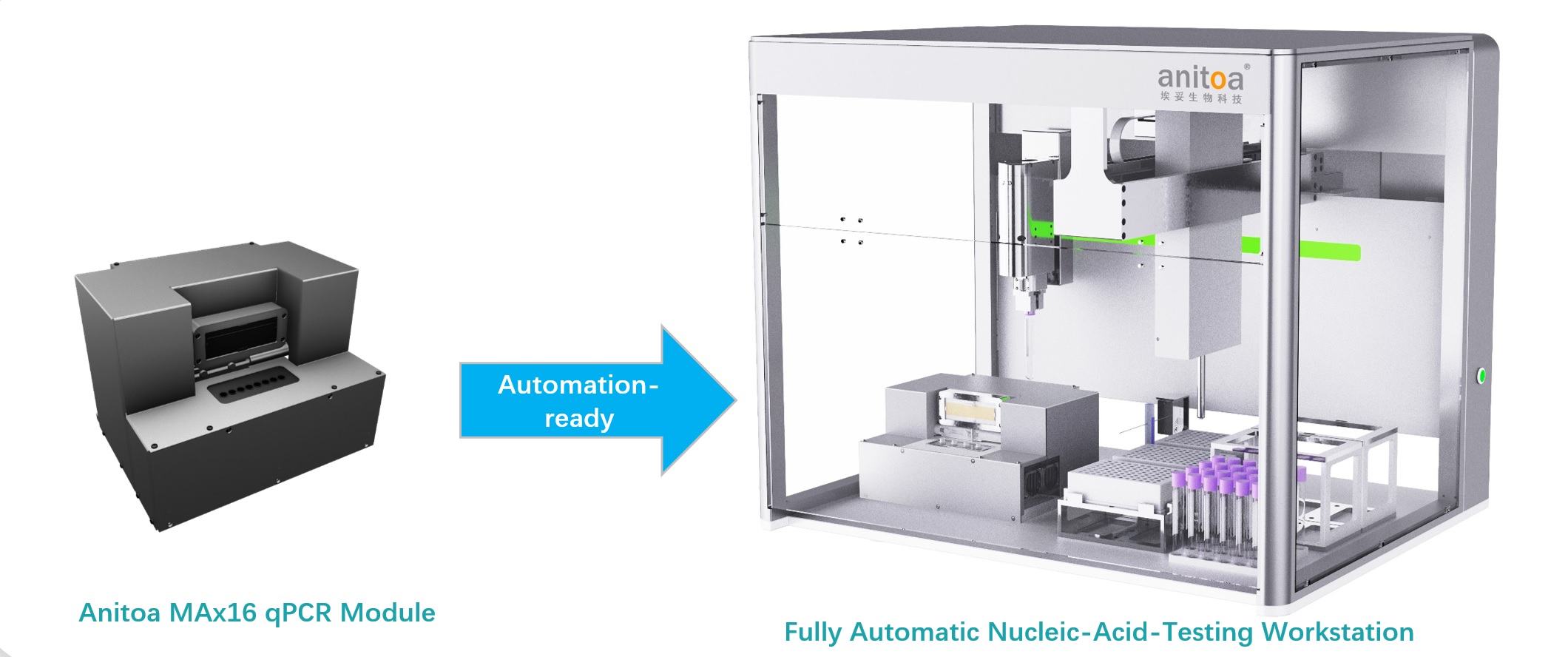Anitoa Releases Automation-ready Modular qPCR System
Anitoa MAx16 Automation-ready qPCR System
SUNNYVALE, CALIFORNIA, UNITED STATES — Anitoa Systems, LLC., a Silicon Valley biotechnology company and market leader in rapid, portable molecular testing hardware, today announced the availability of an automation-ready real time polymerase chain reaction (qPCR) modular system – the Anitoa MAx16.
The Anitoa MAx16 qPCR is a 16-well capacity fully integrated 4-plex (4 independent fluorescence channels) qPCR module that can be seamlessly integrated into a molecular test automation flow. Example applications include integrated sample extraction to amplification and detection nucleic acid test system, sample/library preparation for DNA sequencing. MAx16 features a fast thermal cycler capable of running a complete RT-PCR protocol in less than 30 minutes. MAx16 and compact, rugged, and easy to use. MAx16 instruments are equipped with Anitoa’s in-house manufactured CMOS based 4-6 channel fluorescence detection optical system. MAx16 does not require calibration due to its solid-state design of the optics subsystem.
To facilitate automation, MAx16 has an electrically actuated heat lid. MAx16 also provides a digital interface to the main automation system controller and supports a variety of communication protocols, such as qPCR control over CAN bus or USB link. MAx16 measures only 250mm X 160mm X 140mm, and less than 2200g, and can be easily fitted into a compact desktop robotic fluid handling automation system.
“We are seeing a growing demand for fully automated molecular test systems that are compact, easy to use and reliable.” said Dr. Zhimin Ding, CEO of Anitoa Systems. “We are excited to participate in this market and help improve molecular lab test throughput and at the same time reduce staff workload.”
About Anitoa
Anitoa Systems, a medical device technology start-up established in 2013 with headquarter in Sunnyvale, California, develops highly integrated and low-power CMOS-based bio-sensor devices for fluorescence and chemiluminescence-based molecular imaging. By replacing the traditional bulky and costly photon-multiplier tube (PMT) and CCD-based optical sub-systems, Anitoa’s ultra-low-light CMOS sensor technology enables a new generation of compact and inexpensive molecular testing platforms targeting infectious and oncology markers, as well as pathogens in our food and environment. Anitoa manufactures its qPCR instruments in Hangzhou, China and Fremont, California, USA.



